Episode 11: Board Meetings | Top 3 Things We've Done to Positively Affect Our Climbing
It's finally here!
For quite some time I've toyed with the idea of "in-between" episodes. Realistically, I can only output the great podversations that you've come to expect about once per month. More than that and I lose my mind in audio mixing la-la-land. So while on our recent workshop tour, Nate and I sat down and figured out a rough format for a new concept. And thus "The Board Meetings" were born.
Fueled by late night coffee, wine, and beer, we've recorded several episodes already, and the one that's about to invade your earholes is our very first. It's a little rough around the edges, and a little clumsy at times, but as we recorded more episodes, they got better and better.
You. Just. Wait.
But since I know you're a need-to-know kind of person, and you just can't wait, here's the basic format:
We pick a topic, and we each make a "Top 3" list for that topic. Neither of us know what the other will say, and we just go in. The intro theme music plays, we start talking, and then it just rolls. Simple. Fun. In this episode we talk about the Top 3 things we've done to positively affect our own climbing. Looking for a way to bust through that plateau? (Aren't we all?) One of our suggestions might just be the way.
Like what you hear? Subscribe to The Power Company Podcast on ITunes, Google Play, or Stitcher Radio, and leave a rating and review!
FULL EPISODE TRANSCRIPT:
Kris Hampton 00:01
Hey, everybody, just a little heads up that we're trying something new here on the Power Company Podcast. It's what Nate and I are calling the board meetings. And this is the first recording that we did for these Board Meetings. This isn't going to take the place of the conversations that you've grown to expect those, we'll still be coming out monthly. We're just going to try to put these out in between. So this first one is a bit clumsy, and we've streamlined it since then. So bear with us if we're rambling a little, but yeah, on with the show. What's up, everybody? I'm your host, Kris Hampton.
Nate Drolet 01:10
And I'm Nathan Drolet. And together we form Voltron. You know how long have you been waiting to say that? I want to say it every damn workshop ee do. I believe it.
Kris Hampton 01:20
So this is Episode who knows what because I don't know when we're gonna put it out. But this is the first installment of the Board Meeting. That's what we've decided on right now.
Nate Drolet 01:30
Yeah the Board Meeting.
Kris Hampton 01:31
The Board Meeting. Sweet. So Nate, and I've been out on the road doing these workshops. And it's been amazing. And people have really been responding. I don't know. I'm super psyched. How are you feeling about it?
Nate Drolet 01:45
I've been amped with it. It's been a lot of fun.
Kris Hampton 01:47
Yeah, get close on that mic. So I don't have to turn you up in here, the refrigerator and the craziest dog next door?
Nate Drolet 01:53
How about this, this better?
Kris Hampton 01:54
That's better. Mouth mouth on the microphone. That's, that's what rappers like to do. So
Nate Drolet 02:00
Perfect. I'll just be mouth breathing over here this whole time.
Kris Hampton 02:04
No mouth breathing, none of that. We have female listeners who are going to get excited. And some male listeners that get excited too. But ,okay. Yeah, the workshops have been great. So thanks to all you guys who came out we've had we filled up most of the spots and most of the cities. So that's been pretty damn cool. And all the gems one is back, which I think is even cooler.
Nate Drolet 02:29
For sure.
Kris Hampton 02:30
Yeah, anything, anything special you've gotten from any of these, or learned or been surprised by?
Nate Drolet 02:40
I don't know. They've all been pretty good. Working with the team kids,and especially the coaches, when we had the coaches clinic was a lot of fun.
Kris Hampton 02:47
Yeah, that's, that's probably the most surprising moment for me was, I wasn't sure what to think going into that.
Nate Drolet 02:54
Yeah.
Kris Hampton 02:55
But we went in, and it was great. And, and we definitely want to do it again, like we did a, we did a workshop for the coaches the same as we were going to give to their team kids the next day, and just kind of ran the coaches through it and, and the coaches picked up on it all really fast, and then helped us coach the kids, which was really cool. And we got to, you know, work with the coaches on the dialogue that they were using and, and how to frame questions for the kids or frame, you know, their conversations with the kids, which was really cool.
Nate Drolet 03:25
Yeah, no, it was great. And plus, it was so fun to see how they were interpreting the information, because it wasn't just them wanting information for themselves, which they obviously did as well, but also so so that they could pass it on to kids. So it was interesting. Because they wanted both sides, like the questions they would ask me things like that.
Kris Hampton 03:44
Yeah. Yeah, it was cool to see that they were excited to learn as climbers, as well as, as coaches, because I definitely think there's a distinction there. You know, I have to, I have to draw a line between my coaching and my climbing and I have to think differently when I'm working with someone else versus how I coach myself.
Nate Drolet 04:04
Oh, for sure.
Kris Hampton 04:05
So I think it was cool to see that.
Nate Drolet 04:06
Yeah.
Kris Hampton 04:08
Yeah. And I was really surprised how much fun it was to work with the kids because I wasn't, I want to share how that was gonna be. I don't want to deal with parents. That's, that's my number one. desire in this whole coaching thing is to not work with parents.
Nate Drolet 04:24
Yeah, I think that was maybe the best thing about these clinics is that it was just the kids and the coaches.
Kris Hampton 04:29
Yeah. Yeah, I don't I don't think parents want me working with them either. But I can do it in a very limited role. And I quite enjoy it in that case. So So this was a ton of fun and big shout out to Brad Hilbert, who had us out to Triangle Rock Club and he he did a lot of the legwork and did you know all of the work with the parents and and brought some great team kids out for us to work with so yeah, and all thanks to him. Yeah, and all the coaches for sure. Yep. Okay, let's tell him about this thing, this Board Meeting thing, what the hell is it we're doing here. We basically want Nate and I want to have conversations about things that we think are important for you guys to hear. And you know, this whole thing has been conversational. So we want to keep it that way. And we want to pick a topic. And oftentimes, we'll probably do list top three things we've learned from blah, blah, blah, whatever that might be. And today, we're going to talk about the top three things we've done that have positively influenced our own climbing. Right?
Nate Drolet 05:41
Yeah.
Kris Hampton 05:42
This is Nate's topic. So I'm making sure I got this right. Yes, that is what we're going with. All right. And just a quick, quick update here on the podcast. And I'll tell you more about this later. But I just want to put this little bug in your ears. We are working on some ways for you guys to help out. We've got lots of exciting things happening. I've got, like 7000 interviews in the can now maybe closer to 12. But
Nate Drolet 06:12
Twelve thousand.
Kris Hampton 06:13
Yeah, 12,000. Exactly. In the can ready to go with people like Christian Bale, if he were Jonathan Siegrest, people exactly like that. So I've got a bunch waiting to come out for you guys. And we've got some ways for you to help coming up. So anyway, let's get into this thing. Because I know that's what you want to do. And I do too. And I'm done with my coffee here. And you can tell I've had a lot of coffee, caus' Nate's making us drink coffee out of these little tiny ass cups.
Nate Drolet 06:47
They're adorable.
Kris Hampton 06:49
They are quite adorable. But I end up drinking about four times more coffee than I normally would. Because they're out of little cups, and I drink them in two drinks. And it's eight o'clock at night, so I may never get to bed. So all right, top three things that have influenced our own climbing. How about you go first?
Nate Drolet 07:10
All right. I'm going chronological with these. First one was back in 2009 and...
Kris Hampton 07:18
You remember back that far? I don't remember back that far.
Nate Drolet 07:22
So, that's why I have 8a.
Kris Hampton 07:25
True.
Nate Drolet 07:26
Yeah. Numbers, Kris. So beginning of that year, I was climbing V7 or so. And I just climbed like an absolute sloth. I locked off absolutely everything. And...
Kris Hampton 07:42
Are you making fun of me?
Nate Drolet 07:43
Yes, very much. I was worse way worse than you. No, it's terrible. I I felt like I could either walk off to a move or I would never be able to reach the move, I would have to all points off dyno or lock off. I had no in between ground. And it started become a huge issue. I was really inconsistent with my climbing and at that time, so it was like V7 and maybe I think 12d as well. And about that time I picked up David McLeod's 9 out of 10 Climbers.
Kris Hampton 08:12
Oh, yeah, great book.
Nate Drolet 08:13
I know. Still, to this day, I think one of the best books on training for sure. And it's funny. It's the first book in my life. I opened it up started reading. And I can't even remember what it said. But this is the first time of my life. I set the book down, went over, grabbed a highlighter, and came back and highlighted the paragraph.
Kris Hampton 08:35
Crazy.
Nate Drolet 08:36
Yeah, I know. I don't read. I never read much. But... I highlight with Sharpies, black black Sharpies preferably I just I disagree with this. Taking it out.
Kris Hampton 08:45
I think he's talking about me here. So just blank this part out.
Nate Drolet 08:51
Yeah, yeah. And so I read through that book. And I felt like it gave me a lens to look at climbing training through. So from then on anytime I would look at some sort of training plan or read other books. This gave me a reference point to see that with.
Kris Hampton 09:09
Yep.
Nate Drolet 09:10
And yeah, there are a couple. I mean, I had tons of takeaways, actually, one of the coolest things about that book is a little bit of an aside before getting to the actual thing here. So went through everything that I saw, it was speaking directly to me, I highlighted. And so after that, every year for the next four years, I ended up rereading the book. And what was crazy was every year, you know, I'd go through and see the highlighted sections, I'd be like, I don't even understand why I highlighted this, you know, because I just spent the last few years focusing on it. So now it was so ingrained, or I would flip through, you know, there's these huge gaps where nothing had been highlighted. I'm like, how did I miss this? This is gold right here in the middle. But it was just, you know, things didn't apply me at that time. Or there is the third thing and it was something that was highlighted and I kept avoiding it. No, it's where I pulled out the black highlighter.
Kris Hampton 10:03
Yep
Nate Drolet 10:04
I've seen this six times.
Kris Hampton 10:05
It doesn't even exist anymore.
Nate Drolet 10:06
Yeah, footwork drills? No, no thank you.
Kris Hampton 10:09
So, Read 9 our of 10 Climbers. And he talks a lot about how you need to use momentum. And I knew that that was a limiting factor. And so I decided I was just going to train momentum non stop. So that's what I did. I made up all my own makeup boulders to where they were the biggest moves that I could reach. So they were beyond my lock off, but they were too bad of holds to just jump to. And eventually I got really good at it. And now all I do is climb with momentum. I actually recently had to relearn how to climb statically but, uh, within So beginning that year, I was climbing 12c, or, 12d and V7. By the end of the next year, I had climbed six V10s. And 13d. Sick.
Nate Drolet 10:56
So there's that...
Kris Hampton 10:58
Dave Macleod gets half your 8a points.
Nate Drolet 11:00
Exactly he gets all all the eight points. Yeah, so for me, that was one of the biggest things was really practicing momentum, which was all spurred on by reading 9 out of 10 Climbers.
Kris Hampton 11:11
That's cool. Maybe I should go back and reread 9 out of 10 climbers.
Nate Drolet 11:15
I would but uh, I loaned it to someone.
Kris Hampton 11:17
Yours is all black now. Yeah, exactly. I just rip pages out when I don't agree with them. All right. So what do you got is number one? All right. My number one was I got honest with myself about my strengths and weaknesses, and specifically,
Nate Drolet 11:35
Your pinkies?
Kris Hampton 11:36
Well, that's my strength that I don't use my pinkies that don't need those things. No, seriously, my, the thing I had to really get honest with myself about was something that I thought was my biggest strength. I had been told for years that I was a pretty climber and that I looked good climbing and that I had great technique. So I really had to be brutally honest. and say, okay, you have really good technique in a very limited range. Yeah. You know, and I had to realize, if I took the entire spectrum of technique into account, I had really horrible technique, you know, because I didn't have three quarters of the skills I needed to be a better climber,
Nate Drolet 12:27
For sure. You mastered in such a small sector?
Kris Hampton 12:29
Yep. Yeah, the tiny little like, Red River Drop Knee twisty technique that was me. Hang on forever, you know, yeah, that was all I could do. You know, so I really had to get honest with myself about that. And then that led to, you know, really looking at my other weaknesses. As, as that got better and started to get shored up a little bit. I was able to really reflect back on what else do I need, and it got easier and easier as it does to look at your weaknesses. After you start attacking the big ones. The little ones are much easier. You don't have to sharpen the book out nearly as much
13:06
For sure. And also you realize how much of it benefit you get.
Kris Hampton 13:10
Yeah, for sure. It's a huge benefit when you can be honest with yourself and it hurts. You know, it hurts, especially when you've heard people tell you for years that that's what you're good at. You know, I had to go Okay, all you people are stupid.
Nate Drolet 13:26
Well, it's easy to I mean, I don't you know, I don't think there's necessarily a bad style, but it becomes an issue and you start to take pride in one thing, and you almost start to use it as a crutch.
Kris Hampton 13:35
Oh, for sure.
Nate Drolet 13:36
I know. I've definitely had that with several things in the past.
Kris Hampton 13:39
Yeah, there are a lot of times I still want to make a move. And I have to catch myself I want to make a move pretty and graceful and it's just not gonna be you know, it's gonna be a thug-y ass. You know, growling, screaming kind of move. And I need to be okay with that. As opposed to I need to find the drop knee that makes it pretty or I go Oh, that move is stupid, you know and walk away.
Nate Drolet 14:03
Oh, yeah. No that's a I had a very similar issue and thankfully I climb so I climb at TBA Tennessee Bouldering Authority in Chattanooga a lot. And man, just a bunch of animals that climb in there, like guys are all so strong. And I'd always try and beta things down, which a lot of times works. But at a certain point, you know, I'd be trying 15 different methods and one of the guys the guys i'd be trained with, just look at me be like, dude, just try hard.
Kris Hampton 14:30
Yeah,
Nate Drolet 14:30
And sure enough, it's like, you know, sometimes you just gotta knuckle down and huck meat.
Kris Hampton 14:34
Yeah, for sure. Yeah, so that's my, that's my number one. I got honest with myself.
Nate Drolet 14:39
What uh, was there something that caused that?
Kris Hampton 14:43
Caused me to have to get honest with me?
Nate Drolet 14:44
Yeah, was there just a roadblock or?
Kris Hampton 14:47
Um, really, it was just kind of a hit a plateau. Like I had maxed out what I was doing, and it all started with, I was a trad climber. I basically quit climbing for a while. Because I was so disenchanted with running out of track climbs in the red for the most part, and I thought bolts were incredibly ethically stupid. And, and then I came back to climbing rediscovered the Red. So I had to start rethinking my motivation for climbing to begin with. And so that started me on that path. But then I'm kind of maxed out with my endurance training, because that's kind of where I started. So once I maxed out on that I had to go Okay, what do I do now? You know, I'm not gonna get any better with this. So I have to, I have to change things.
Nate Drolet 15:35
Can't shake out on jugs any longer than you already were.
Kris Hampton 15:37
No, yeah, I was shaken out on every damn hold. It didn't matter what the hold was. I could shake out my way up every route I climbed. So yeah, because if it had a crux, I couldn't do it.
Nate Drolet 15:48
Mm hmm.
Kris Hampton 15:49
Yeah. All right.
Nate Drolet 15:51
All right. So my number two...
Kris Hampton 15:54
Numero dose.
Nate Drolet 15:55
Yes. So this was in 2014. So this wasn't that long. 2014 or 2013? I don't really remember that well. So I was working at an Amazon fulfillment center as a picker.
Kris Hampton 16:08
Yeah.
Nate Drolet 16:08
Was work in 50 hours a week. So I was working 10s a week. And then during the winter, I was working 5 12 hour night shifts a week. So that was horrible.
Kris Hampton 16:20
Yeah.
Nate Drolet 16:22
And as a picker, you walk in a 10 hour shift, typically, I don't know 10 to 14 miles, something like that, depending on what it is. But there's a lot of I mean, there's a lot of bending down a lot of reaching up super high. Just a lot of movement.
Kris Hampton 16:34
Can't you get just like a motorized wheelchair or something?
Nate Drolet 16:37
That'd be amazing.
Kris Hampton 16:38
It would be cool.
Nate Drolet 16:40
Then you'd be sitting 10 hours a day. I don't know if that's any better. It's like walking 10 hours a day.
Kris Hampton 16:45
Segways dude.
Nate Drolet 16:46
Segways. Yes. That wouldn't be terrifying segways and conveyor belts. So I was working a ton. And man, I just, you know, I'd get back from work and I'd be exhausted when I get to the gym. If, yeah, come back. And I had a really short window, so I get off work. I think about 6:30 when I was driving to the gym, I'd be eating dinner. On the drive to the gym and...
Kris Hampton 17:16
See this is where I thought you're gonna say eating donuts
Nate Drolet 17:18
Eating donuts. As soon as you as soon as D came out of your mouth. I was like doughnuts. Yes. Anyway, sorry you're on the gym eating donuts for dinner.
17:27
Yes, I'd eat donuts for dinner. A couple kolaches.
Kris Hampton 17:31
I don't even know what a kolache is. Sounds polish.
Nate Drolet 17:35
Well done. Yeah, maybe some paroeges to top it off. So Amazon working lots. Yeah. So, by the time I get the gym, I'd already be pretty tired. And I realized I needed a ton of sleep. If I was going to be able to keep up my training load. And obviously like, do this whole time I wanted to keep training. I had a big trip coming up that year was gonna go out outwest go see a couple different places that I hadn't been before. And then in the grand scheme, I wanted to go to Hueco Tanks that winter. So after the Christmas of working 5 12 hour night shifts a week. So the biggest thing was I realized I needed a lot of sleep, I needed to eat well. And it actually, that job forced me to have a lot of self imposed constraints.
Kris Hampton 18:28
Yeah.
Nate Drolet 18:29
So, what I did was I limited my climbing session, no matter what time I got to the gym, which was typically around between 7 and 7:30. Depending on traffic, I had to leave by 9. Because I had to get home go to sleep if I was going to be able to keep this going.
Kris Hampton 18:44
Yep.
Nate Drolet 18:45
So man, yeah, there most days, it was typically about a 90 minute session. And, man, it doesn't take many bad sessions where you go in and you just kind of goof off. You don't pay attention or, you know, you don't get to the point to where you try hard. And then you just have to leave. Man I yeah, I'd get livid when that happened. I'd be like, I just wasted a day and I don't have extra days. Yeah. So at that time, I ran across it. Dan, John article that said, "If something's worth doing, do it every day, if it's not worth doing, don't do it at all."
Kris Hampton 19:20
Good advice. Yeah. So am I wrote down a list. I was like, What to me is important. What do I need to do? Donuts? Donuts. Yeah, send donuts. So I wrote down what I needed to do. Core was important. Finger strength was important. At this time, I was still had really weak fingers. And we've talked about this. I used to not I used to be known for having a really, really weak hands. Like which is crazy because now most people who've just met me recently, they're like, oh, you're just like the tiny guy who crimps a lot. Right? Well, that's how I first heard of you was that guy from Texas was really weak hands.
Nate Drolet 19:58
Yeah, exactly. freakishly small hands from Texas. So, yeah, my crimp strength was holding me back and actually wrote a little blog about this. Yeah, when I started hanging, so I decided I was going to hang board every single day that I went to the gym, I go in, and I would just do two hangs. And they did a couple other things as well, like, because my sessions are only 90 minutes, I would go in, do 30 minutes of really focused movement training. And then I would just try as hard as possible, well, do my hang 2 hangs and then try as hard as possible, and then cool down and leave. And by doing only 90 minutes, and actually really paying attention to what I was doing. That was monumental for me.
Kris Hampton 20:41
Yeah, I think that's really important. Because the majority of our clients here are working people, you know, have real lives and a lot of them have families and responsibilities, you know, and you have limited time. And a lot of people believe they just don't have time that it really didn't take that much time.
Nate Drolet 21:01
No. And that's whats surprising.
Kris Hampton 21:02
The right things.
Nate Drolet 21:03
Yeah, that was probably the least I've ever trained to me. I was typically training four days a week for like, 90 minutes a day, something like that. So not much. But yeah, and so overall, that was huge for me. Definitely for finger strength, like at that time. So before then I had already climbed a couple of V11s. But this was something we had talked about. I mean, I honestly believe if you travel enough, like I think if you're a solid V8 climber, if you travel enough, you can go find a V10 that you can do.
Kris Hampton 21:33
Sure. Something that really fits your strengths.
Nate Drolet 21:35
Yeah, exactly. So I had just seen enough boulders, and I was able to find boulders that fit my style. But I was quickly running out of those boulders. And so yeah, it was that was one of the biggest things for me was one learning that I didn't have to spend a ton of time in the gym, and I could still keep getting much stronger than I had when I was spending a lot of time.
Kris Hampton 21:57
Yep.
Nate Drolet 21:58
And also focusing on finger strength.
Kris Hampton 22:00
Yeah, cool. Very cool. And I think that's a good like I said before, I think it's a good lesson for everybody. You don't have to be in the gym for 20 hours a week.
Nate Drolet 22:09
For sure.
Kris Hampton 22:09
You know, always bashing your head into the wall while you're there. Which is what most people do, sadly. Okay, my number two kind of goes hand in hand with my number one. And sort of with your number two as well. I learned to really Boulder. What, what I had going on, was I was a rock climber. I had heard bouldering is how you gain power. So I would go to the bouldering gym and I would go bouldering and I would do you know 40 move boulder circuits, you know, and I thought I was bouldering I'm like, Where the fuck is my power? That's not coming. And it finally occurred to me that I'm just climbing routes. I'm just not clipping.
Nate Drolet 22:58
Yeah. So just taking the rope off doesn't really make a difference.
Kris Hampton 23:01
Yeah, it doesn't make a difference shockingly, Dave Macleod didn't tell me that part or I blacked it out in Sharpie. But so once I really started digging into the the mindset of working on two or three hard moves, you know, and really spending time deconstructing those moves and breaking down what was happening and really focusing on what I needed to do to make those moves happen. That's when my power started really shooting through the roof. You know, when it went way beyond what it was really fast. And and that was really cool to see. But just bouldering doesn't do it if you're not focused on the right things.
Nate Drolet 23:48
Oh, yeah. What made you come across the briefer, more intense.
Kris Hampton 23:53
Honestly watching some guys in the gym here. There are a couple guys, Aaron Schneider, Dan Rush, a couple of guys who are strong boulderers in town. And it occurred to me that I never saw those guys do more than like, eight moves a night. You know, they would just it sounds crazy. But they would camp under hard moves. And they would try them all night. And they might I might not see them stick a move for hours, you know, hours a week. I mean, I might I might not see him stick anything. And then I was finally like, well, they're getting really strong that way and I'd seen other strong people do that. You know Ben Safdie he's in Colorado now. He's from here. super strong kid.
Nate Drolet 24:42
Yeah, I met him at the Red couple years ago.
Kris Hampton 24:43
Yeah, he used to do the same thing. You know, he would just camp under these super hard moves. And he might stick one move a night, you know, two moves a night. And finally I was like, Okay, if it works for those guys, I'll see if it works for me. Because I've always since I started this whole Power Company thing I've always wanted to just be an experiment, you know, keep experimenting with myself and see what works. So that's how it all started. And I thought I'll try what they're trying to see if it works. I don't think it's gonna work, you know, seems crazy, but it worked.
Nate Drolet 25:17
Yeah, no.
Kris Hampton 25:18
Still working.
Nate Drolet 25:20
Yeah, it's funny. I think it helps to ya'll have kind of a smaller gym.
Kris Hampton 25:26
Yeah.
Nate Drolet 25:27
Like, which I think is really beneficial. Man. Some of these tall walls make it a little hard for that.
Kris Hampton 25:31
Yep.
Nate Drolet 25:32
That's one thing that's nice with TBA too shorter walls, everything's really intense and powerful.
Kris Hampton 25:36
Yeah, and actually at the gym that I started bouldering at, because at the time, RockQuest, where we climbed the last couple of days, didn't have bouldering, or they had only a tiny bit. But the bouldering at Climb Time, which is a really great bouldering gym. The walls are pretty big. So you can do long boulders in there. But, but I would never see these guys get the top of hard boulders. You know, they were hard boulders that couldn't even come close to touching. But they never, you know, they just worked on a move or two at a time. So nice. So it's really more about them than being forced into it. For sure. I do like to be forced into it now though. Like I like the engine room wall that's only a few moves long. You know, my best training season to this point was on a wall that was eight feet tall and my friend's basement. You know, I trained two moves at a time on that wall, the whole training season and came out stronger than I'd ever been, you know, made made the biggest gains that season.
Nate Drolet 26:37
I think, you know, Steve Maisch said something similar, and I came across. It was in 2009 Sonnie Trotter wrote an article on said that the strongest his fingers hadn't ever been, had been, I think from 2002 or something like that him and a couple buddies built yet tiny little Woody. Yeah, tand they just rallied. Yeah. Yeah. I mean, so there's something to be said for just a few difficult moves
Kris Hampton 27:04
Yeah. I mean, that's what all the Wyoming dudes did back in the day. They just had a little, these little Woody's and, you know, super short, super steep. Tons of power. So if it weren't for them, I mean, yeah. All right. Let's take a break word. What's up everybody, Kris here. Sorry to interrupt. I'll keep this brief. Since this podcast thing became officially official, I've gotten a bunch of messages from you guys asking how you can help out and make sure that it keeps going. Well, now we've got away our new Patreon page, which you can find at patreon.com/powercompanypodcast is set up so that you can become patrons of the podcast, we want to keep this thing sponsor free. You know, we want to keep it mostly commercial free, except for our own commercials like this one, of course. So the way it's set up is that you can donate monthly $1 a month, $5 a month all the way up to $25 a month, and you get rewards in return for that, for instance, for the $5 a month, you get our Google Voice number, which means you can call leave us a voicemail message. And we'll play it on the podcast and try to answer any questions that you have. So we're trying to give back to you guys and again, trying to keep this thing sponsor free. So help us out patreon.com/powercompanypodcast, or you can go to powercompanyclimbing.com and click on the podcast tab. Thanks a lot back to the show. Right. Okay, we have returned. How about you give me your number three.
Nate Drolet 28:31
All right, my number three is more recent, and a little more specific than the other ones. So my number three is I started practicing climbing with a higher level of attention. And to do this, this was inspired after I read Pavel Tsatsouline's book, I think it was Power to the People. I read Power to People and Naked Warrior both back to back so I can't remember which ones these are actually from.
Kris Hampton 29:09
I don't even want to think of Pavel in the naked warrior term at the same time as bodyweight training. I just don't want to think that it's there. We need another title for that.
Nate Drolet 29:20
And Josh Ruchi had he wrote a little article that had to do with this as well. But,
Kris Hampton 29:25
Yep, yep good article.
Nate Drolet 29:26
Using intra abdominal pressure and irradiation. Yeah. In both, for me have been monumental. And it's something that I'm still practicing a lot. It's hard to explain. intra abdominal pressure is creating pressure using breath and kind of holding your breath for very extreme difficult moves. And then radiation is purposefully tightening specific muscles, right? To help make everything else fire harder.
Kris Hampton 29:58
Right?
Nate Drolet 29:58
And so by doing those things, To combined, I realized I could try single moves at a much, much higher level than I've ever been able to before. And it's been crazy. So I've been practicing it for about a year now. And it's something that I still have, I don't know, I feel like I'm probably still only like 30% of what's even acceptable for it. But it's wild. I mean, I've come across moves that I cannot do without creating this type of pressure, or this type of tension. But if I use the tension, I've never missed them.
Kris Hampton 30:32
Yeah, yeah, I can believe that. You know, you you've kind of turned me on to these concepts. And I've been toying with them a little bit, I am not nearly as far down the road as you are. But, but as I've started to dig into it, I've started to notice it more and other people, the the lack of it, and who's good at it. And, you know, like when we were in soil, there was a attention move that you did. And it's not even attention move, I can't call it that you were just using your, your feet and your core in a way that I couldn't do. And it didn't look like a hard move. It didn't seem like a hard move didn't seem like it should be a hard move. But I could not keep my foot on the hold. And it was really interesting watching how you worked through it, and how you were able to pick apart why I wasn't able to do it. You know, and I think that's a hugely important part of climbing that a lot of people just don't pay that much attention to.
Nate Drolet 31:36
Yeah, no, it's, uh, I don't know. And it's, it's tough, because it's, like, for me now, it's still such a, it takes such a conscious effort.
Kris Hampton 31:46
Yeah
Nate Drolet 31:47
Like, it's not intuitive. It doesn't happen on its own yet. And I haven't been able to make it happen on its own yet. So I can really only do it for a handful of moves like, typically one, maybe two moves in a boulder. Otherwise, it just takes so much thought that I can't actually make it happen. Well, at least not at a high level.
Kris Hampton 32:02
Right.
Nate Drolet 32:04
So yeah, it's I don't know, it's weird train and practice. But ya you see some people like Daniel Woods, man, that guy can just create so much tension.
Kris Hampton 32:13
Yep. He's really good at it. I think Angie is really good at it. And, you know, I've and I've, I've recognized her level of tension for years, because I've, I've climbed with her a fair amount. And their moves were and I've said this before, but there are moves where I thought I can't span that, that reach, you know, from toe to hand, I can't reach that without my foot cutting. And then Angie does it keeps her foot on. And she's several inches shorter than I am. And I'm like, What the fuck? Yeah. Why is this even possible? And how? How does she just stiffen up that way? You know, and I think of myself as having a strong core. And I think that's one of the mistakes that people make is they and I see this in the gym all the damn time. People, their feet cut, and they go, I need to do some core work. And I don't think it's that their core isn't strong enough? I think it's they don't know how to use it effectively.
Nate Drolet 33:13
Yeah. No for sure.
Kris Hampton 33:16
Any thoughts on how people can, you know, work on these things themselves, because I really do think this is a huge issue, especially that, you know, higher end climbers can use and buy higher end, I mean, you know, 5.12 and above or V5 and above can start to really think about that will really help their climbing out.
Nate Drolet 33:43
Yeah, I mean, you know,
Kris Hampton 33:44
I think it's good to try and break it down to its most simple form. So as far as creating tension or creating that kind of, yeah, we'll just use tension. You know, drill we used that we call routing. So learning how to drive start by learning how to drive through your low arm. So if you're doing a big move... You're giving away the secrets, man...
Nate Drolet 34:05
I know, shit, we're gonna have to charge for this. Yeah, so when you're doing a big move, let's say you're reaching with your left hand. So learning how to drive through the entire move with your right arm. So that low arm that's still on the wall in it. You know, I say this now and it sounds obvious like of course, and yeah, most people think they do this but until you really spend the time and practice, like you don't realize how much extra strength and how much control you can get out of really focusing on it. So for me, I'll with drills like this, man, I love to pull it back. I'll do it for you know, kind of in my warmup. So boulders that are still like fairly difficult, but not so hard that I don't have the extra time to think about what I'm doing. Practice driving with your arms with your legs. And then slowly start adding trying to create. Yeah, extra tension through your core through your lats through just your legs everything. And so that's I mean, that's the way I like to do it like start with make it do it on really easy boulders and then slowly build up until you're on harder boulders so you're kind of like leveling up as you go. And then if you want to try it on hard moves just do one move at a time so it's nothing else that you up there's nothing else you have to think about.
Kris Hampton 35:20
Yep. And I think when you're practicing it create more create far more tension than you think you need.
Nate Drolet 35:26
Oh for sure.
Kris Hampton 35:27
Just to really learn what it feels like and learn what that tension does, you know and learn how much tension you can create. I think that's a big,
Nate Drolet 35:37
It's funny. I don't know about you. But the first time I started practicing this, I realized I could only do these drills twice a week.
Kris Hampton 35:46
Oh, yeah, they're, they're hard.
Nate Drolet 35:47
Yeah, i'd get destroyed. Like, the next day, I could not create any tension throughout my entire body, like I just be wrecked. So I started having to have like, really slow, high tension days. And then like fast power days, because I realized I could still climb powerfully. But I just couldn't have that high level of tension. And it's crazy. I mean, I could be practicing this tension on you know, V5 V6 V7 boulders like, and it would just destroy me.
Kris Hampton 36:13
Yeah, yeah, you feel like you got you know, you did some p90x bullshit or something.
Nate Drolet 36:18
Yeah. But it works.
Kris Hampton 36:18
That's what it feels like, but you're actually doing something specific to your climbing?
Nate Drolet 36:22
Mm hmm.
Kris Hampton 36:23
Yeah. Can we talk a second about irradiation? Cuz I think that that's an important concept that we sort of just glossed over.
Nate Drolet 36:31
Yeah.
Kris Hampton 36:32
Let's explain it to people a little bit.
Nate Drolet 36:34
For sure. You want to start or?
Kris Hampton 36:37
Well, I like I think I heard a Pavel explain it. Like, the way I best understood it, I think was Pavel. And he talks about making a fist, you know, and if you make a fist, you can only make so tight a fist before you start squeezing with your forearm and tightening your forearm. And then if you try to make the fist tighter, you end up tightening your bicep, and you go tighter and then your shoulder is tensed.
Nate Drolet 37:05
And before you know your entire like, pec and back and everything.
Kris Hampton 37:08
Yeah.
Nate Drolet 37:08
All engaged.
Kris Hampton 37:09
Exactly. And that's those muscles don't have anything to do with your fist. But by the concept of irradiation is that if you tighten the surrounding muscles, then it thereby adds more tension to what your target is.
Nate Drolet 37:10
It's like a neurological boost basically, is what it how is it's explained. But that's the exact example he uses. Make a fist. He's like, make fist and make it harder, harder. Squeeze until you can't squeeze any harder. And you'll feel you know that entire side of your body.
Kris Hampton 37:39
Yep.
Nate Drolet 37:41
Yeah, just completely activated. And so it's that same idea. And he uses four main things for activating four main things to focus on for activating radiation, and that's your core or whole midsection, your glutes, your lats and your grip, those four three things act as amplifiers for the rest of your body.
Kris Hampton 38:03
Yep. So what we're saying as far as climbing goes is, you know, if you've got a toe way out to the left, and you're trying to apply tension to that toe so that you can make a move, you don't just need to flex your calf harder. You you need to squeeze your ass, you need to, you know, squeeze the hand that's gonna stay on the wall. Squeeze that grip harder. You need to squeeze your lats, squeeze your core, get everything tight, and then that toe will work that much better. Yeah. Which obviously that's a lot of things to think about. It's a lot of things to think about. And that's why you do it on the easy boulders.
Nate Drolet 38:42
Yeah, until it starts becoming natural.
Kris Hampton 38:45
Yep, For sure. Yeah, and I'm really loving those drills, actually. And that's at all of these workshops I've done every single time somebody asked me, What are you working on? Like, what's what are you? You know, what are you trying to make better? Because I that's the question I ask to everyone, when they come off the wall, "what can we make better, you know, in what can we improve?" So they all want to know what I'm trying to improve? And I tell them all, you know, since Nate and I've been on the road, I've been really watching Nate climb. Because he climbs with a much higher level of tension than I do. I try to relax as much as possible. You're much better at applying tension when it's required. And it takes me four or five tries to realize, Oh, I need to apply a little more tension there. Because I'm trying to Red River relax through the whole thing. You know, you're trying to get better at learning when to use that tension and how to apply that tension and what that means. So, yes, that's what's your three, my final. This one's really kind of broad, but I think it's super important. I started paying more attention to the outside factors, meaning partners schedule, pre trip preparation, all those things. that aren't training, you know, you can, you can train your ass off, you can train harder than anybody in your gym, in your state in the on the planet. But if you don't schedule right or have the right partners or, you know, have the right goals, when you get outside, it all means nothing.
Nate Drolet 40:22
Oh, for sure.
Kris Hampton 40:23
You know, and it's really easy as a busy person who has a life, a family, and responsibilities to just go, Oh, I don't have time this weekend, or I was going to but you know, it's really easy to do that. So I just got, I really spent a season zeroing in on, I need to figure these things out, I need to have backup partners and backup backup partners and backup backup backup partners, you know, I need to have it covered, no matter what happens. I need to have my work schedule totally figured out I need to have the schedule of the day totally figured out. I need to have the schedule of my project totally figured out, like, what's my goal today on this route, you know, and make sure all those things happen the way they're supposed to happen. And, you know, that made a huge difference. I actually wrote into my training plan, this was written on paper, that I had to stay at Miguel's every weekend, and be the last person to bed. Not because I didn't want to sleep. But because I needed to be more integrated into the sport climbing community. Because that was an old school trad-y. And I could have stayed that way this grumpy old dude. But I needed to be more integrated, so that I had backup backup backup partners, so that if my partners bailed, I could drive to Miguel's and be guaranteed a partner. And it worked.
Nate Drolet 41:56
Nice. Do you feel like focusing on those factors? or trying let's create that. So by trying to improve those factors, do you think it made you more stressed out when they work poorly?
Kris Hampton 42:10
I don't think so. I think I got much better at not giving myself excuses. You know, I think before I really focused on these factors, if something went wrong, I could just bail out. Like, oh, that's just what happens. You know, I'm a busy guy, I've got a job and all these hobbies and a you know, a daughter and all this other bullshit that were just fucking excuses. Because none of those things suffered at all. In fact, they got better once I once I scheduled things and and made sure that everything was going to be working, You know, this concerted effort across the whole spectrum. So I don't think it I don't think it stressed me out more at all. I think. I think I was just able to roll with the punches quite a bit better. Without giving excuses.
Nate Drolet 43:03
What's your favorite excuse now?
Kris Hampton 43:06
Shit, there's a lot of em. My shoulder. Definitely. That's my favorite excuse now.
Nate Drolet 43:13
Good go to surgery helps that.
Kris Hampton 43:14
Yeah, Yeah. And I try to like, I try to use the excuse. Like, you know that my shoulder scared of that move. But then I'll but when I do use the excuse, I can go. Okay, is that valid? If it's not actually dangerous. I'm gonna give it a few more tries and see how it feels. You know? So I think by for me by voicing it, then I get to analyze it a little bit. And I try to voice all my excuses. I tried not to just give myself an excuse inside my head. Because if I voice it, then I have to really look at it and see, am I for real that I just say that or am I just you know, am I just bullshit?
Nate Drolet 43:58
So you get to the crag start pre loading excuses. You know, look around, see who's there. Maybe start doing some ridiculous Thera-band exercises.
Kris Hampton 44:06
I do those anyway. What's your favorite excuse?
Nate Drolet 44:10
Oh. I haven't had enough donuts today. That's a good one.
Kris Hampton 44:16
Or I've had too many donuts today.
Nate Drolet 44:18
Or no, that's never happened. My palms are too long. That's probably the issue.
Kris Hampton 44:27
Nate just held his hand up and he does have an abnormally long palm. It's really kind of freaky.
Nate Drolet 44:33
I've got these tiny raccoon fingers and just these like, awkward paddles.
Kris Hampton 44:36
That is what it looks like. It looks like a raccoon hand.
Nate Drolet 44:39
Oh, yeah, man.
Kris Hampton 44:39
It's so fucking weird.
Nate Drolet 44:40
Unzip your pack and walk away with a granola bar.
Kris Hampton 44:45
So fucking weird and creepy.
Nate Drolet 44:48
Okay, raccoons not my hands.
Kris Hampton 44:50
Raccoons are creepy.
Nate Drolet 44:52
Yeah.
Kris Hampton 44:52
No, your hands are creepy.
Nate Drolet 44:53
No, they're not.
44:57
Self conscious there?
Kris Hampton 44:58
Of course not. I think it's over. I think we're done with this podcast now. Got it off now. We don't tweet, we scream like eagles. No, I think that's I think those are all really good things. And, you know, I think we could have made a top 40 list because I've definitely learned a lot that's made a big dent in my climbing. Not dense, I guess. But dense is the wrong word, but big dense in my weaknesses.
Nate Drolet 45:31
Yeah.
Kris Hampton 45:32
So
Nate Drolet 45:32
I feel like a lot of these two, you always end up coming back to eventually.
Kris Hampton 45:36
Oh, yeah. And I think it cycles like, I have to be honest with myself again, about what my weaknesses are every every season, I have to go, Okay, what is it I need to work on? You know, it doesn't matter that I'm better at these people. You know, at that, no, it doesn't really because there's always Jimmy Webb and Daniel Woods and Angie Payne, and, you know, Alex megos, who are always going to be better at me than just about everything. So, except for rapping. Because Daniel Woods can't rap, let's be honest. But they're always gonna climb better than I do. And I have to be honest with myself and not be the big fish in the little pond. And I think that's a constant cycle. All these things you have to cycle back through. Now, eventually, your strengths are your weaknesses. Once you make all your weaknesses, your strengths. Yeah.
Nate Drolet 45:39
I think that's a a...
Kris Hampton 46:35
Did i say that right? Yeah, I think I said that right. I'll listen back to that. Man. I might cut that part out.
Nate Drolet 46:42
All right. Yeah.
Kris Hampton 46:44
But. Cool. Are we done? We're done.
Nate Drolet 46:49
I think so.
Kris Hampton 46:49
Shit. That's three things. Just went fast. We should do like four more of these tonight. More coffee. More coffee. All right. We will see you guys later. We don't tweet we scream like eagles.

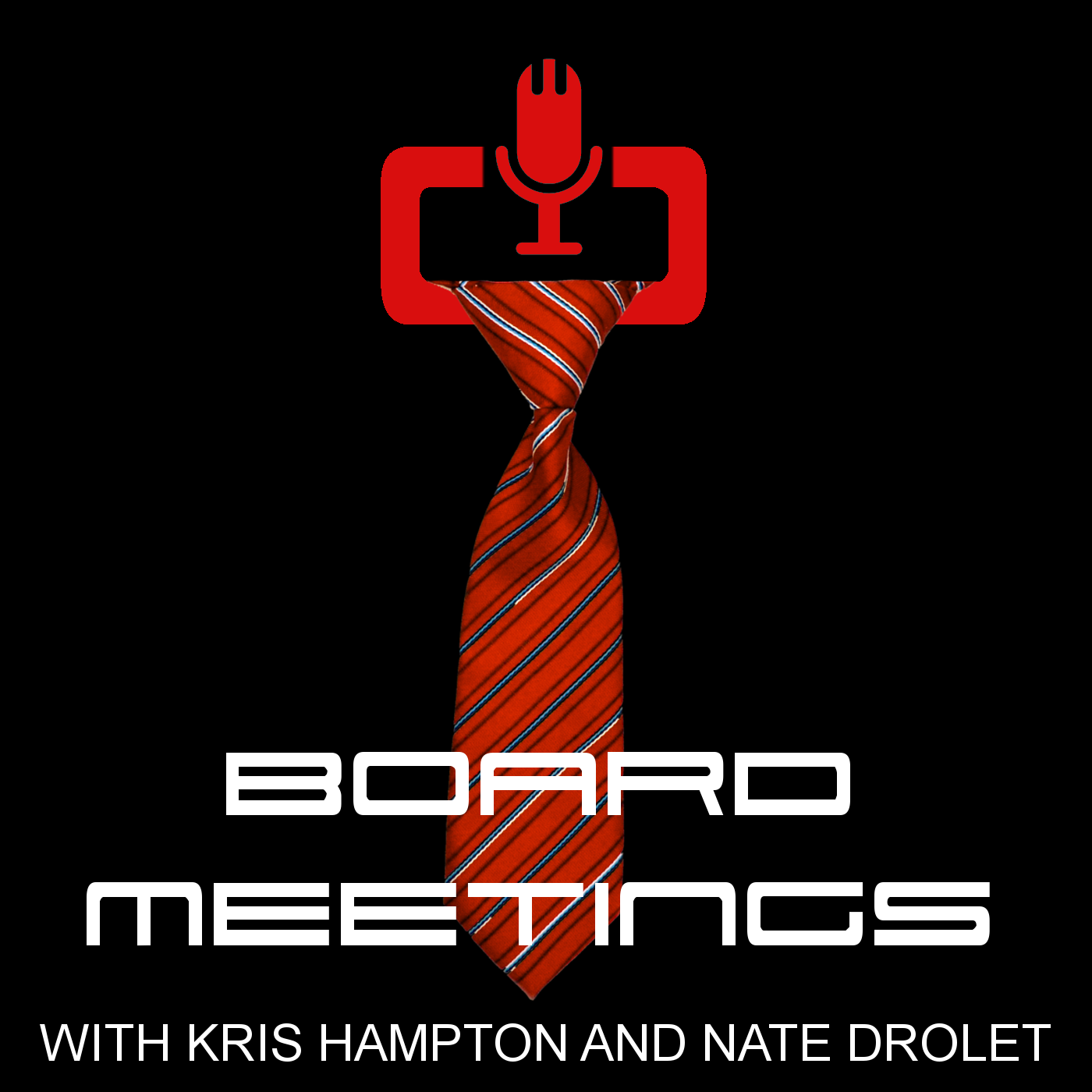

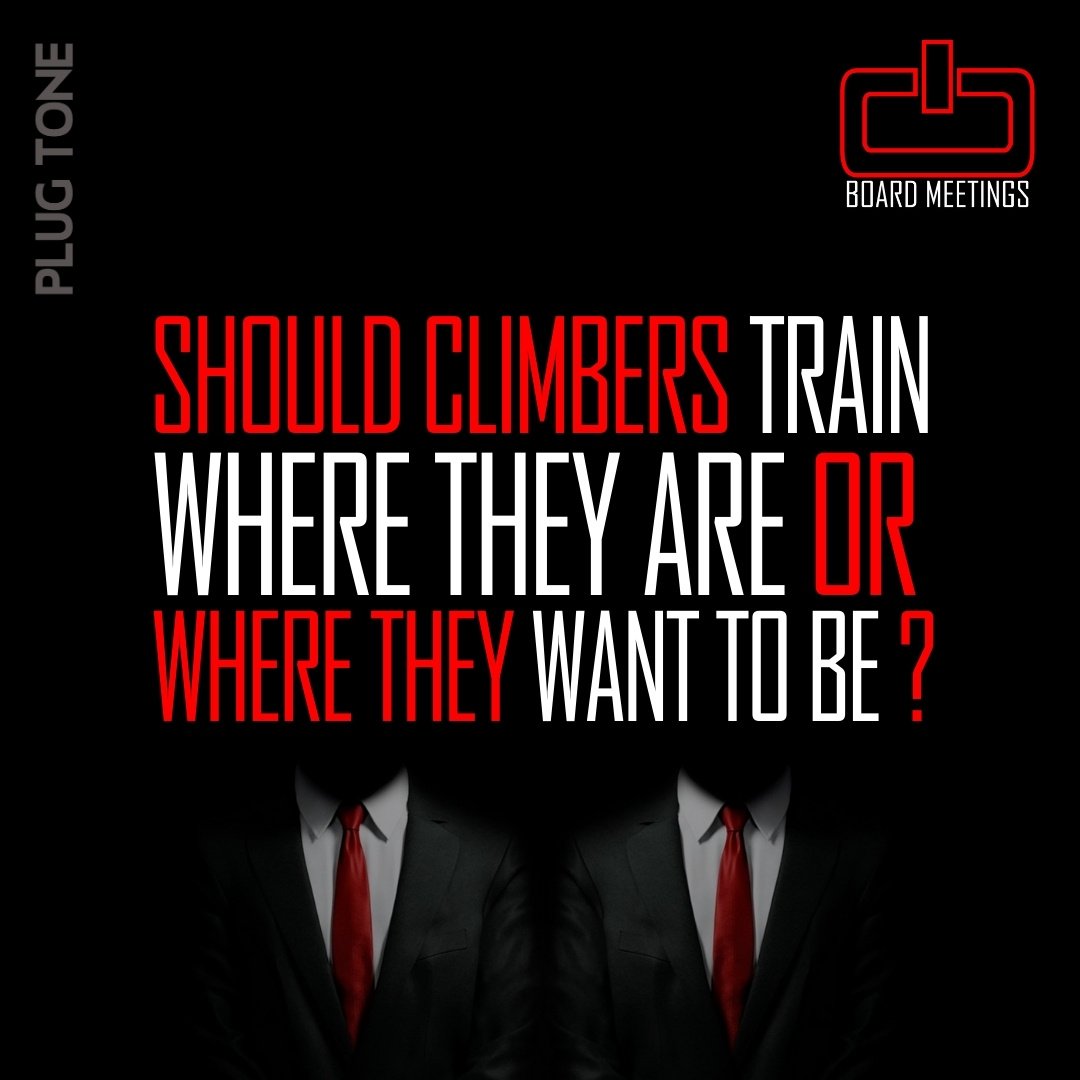


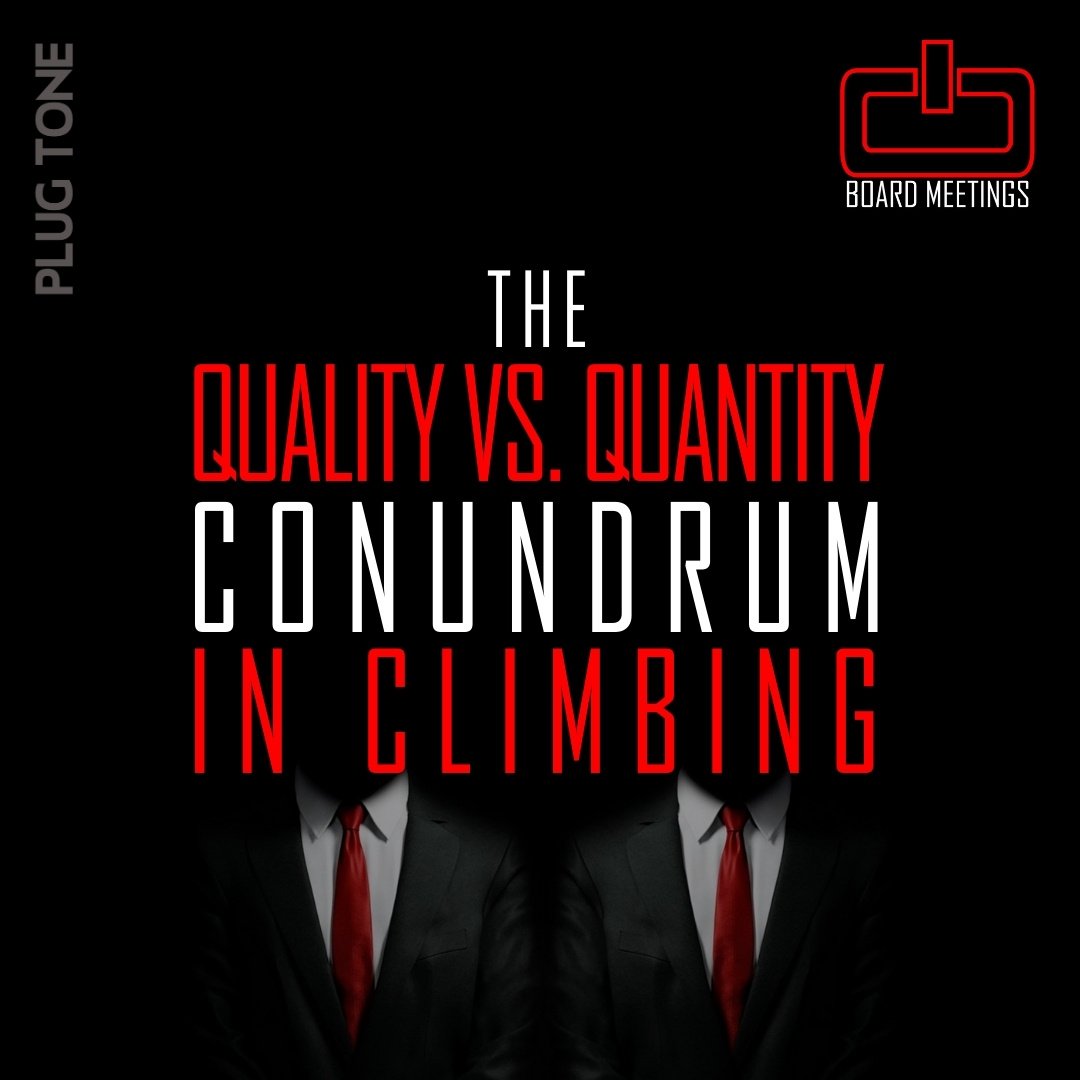
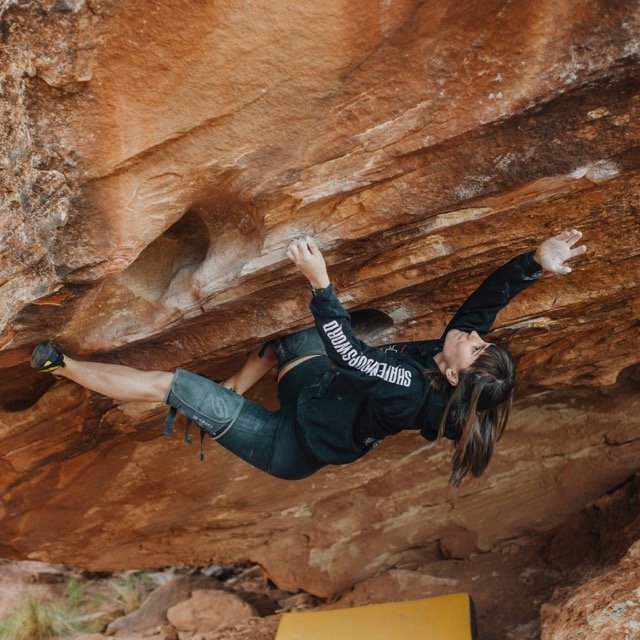

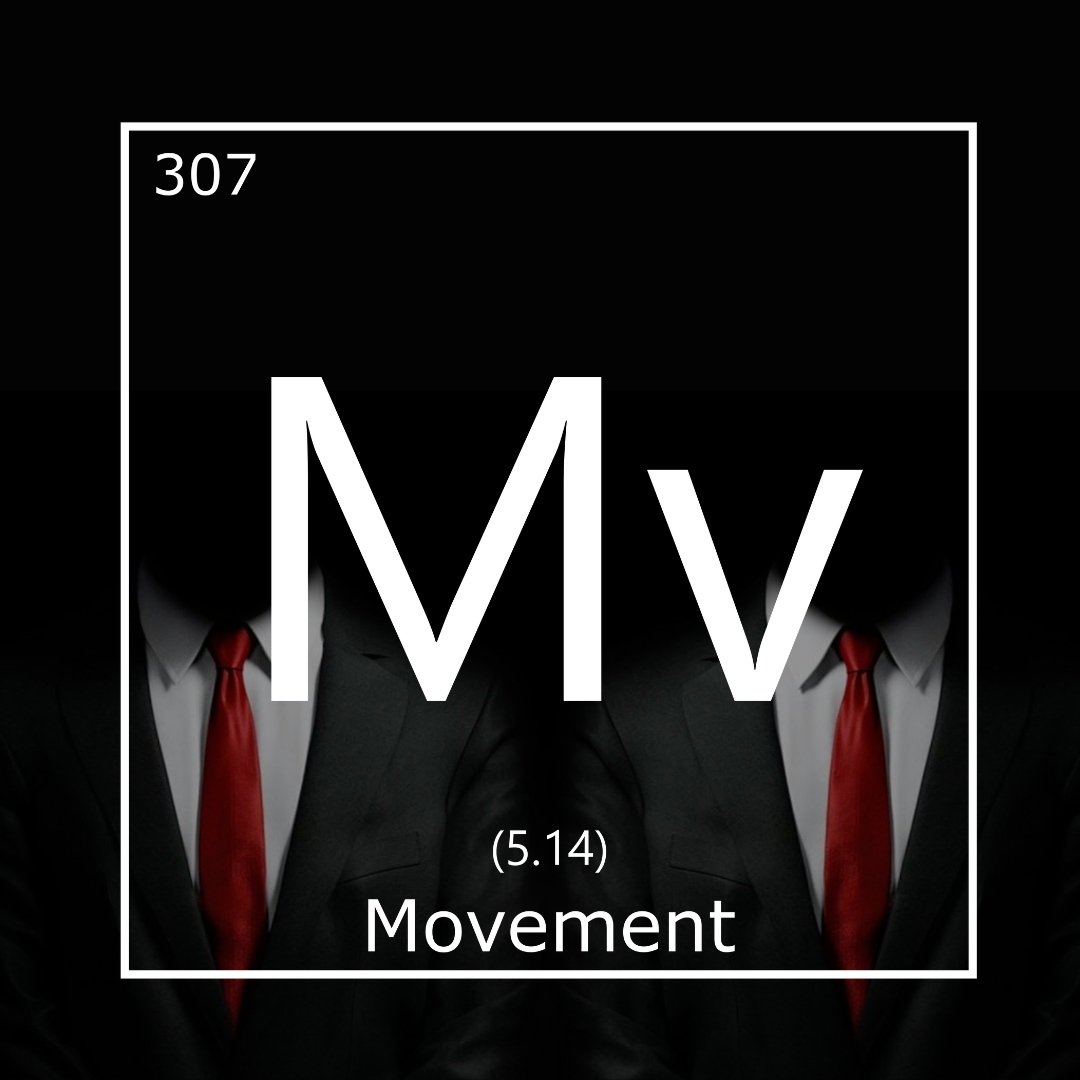
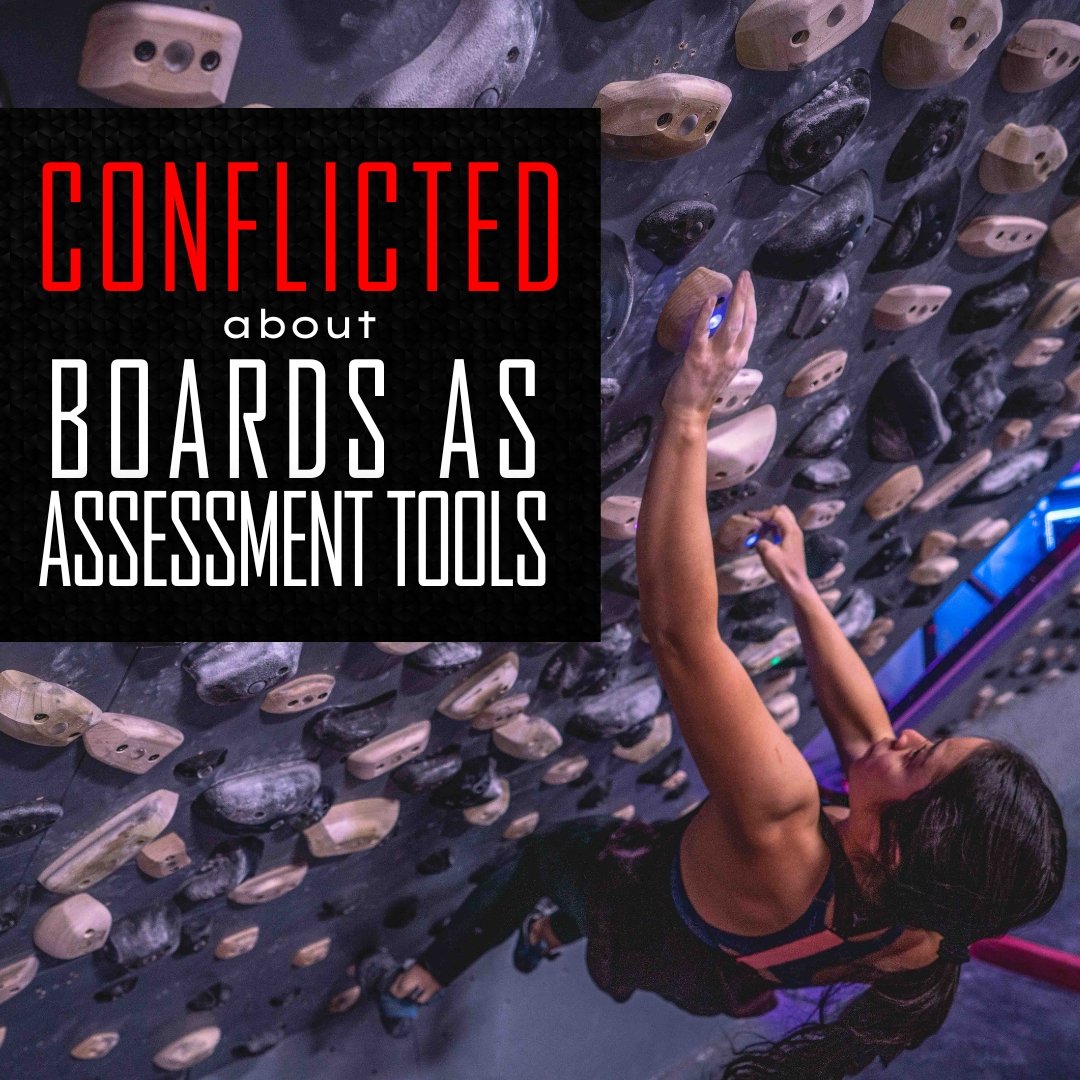
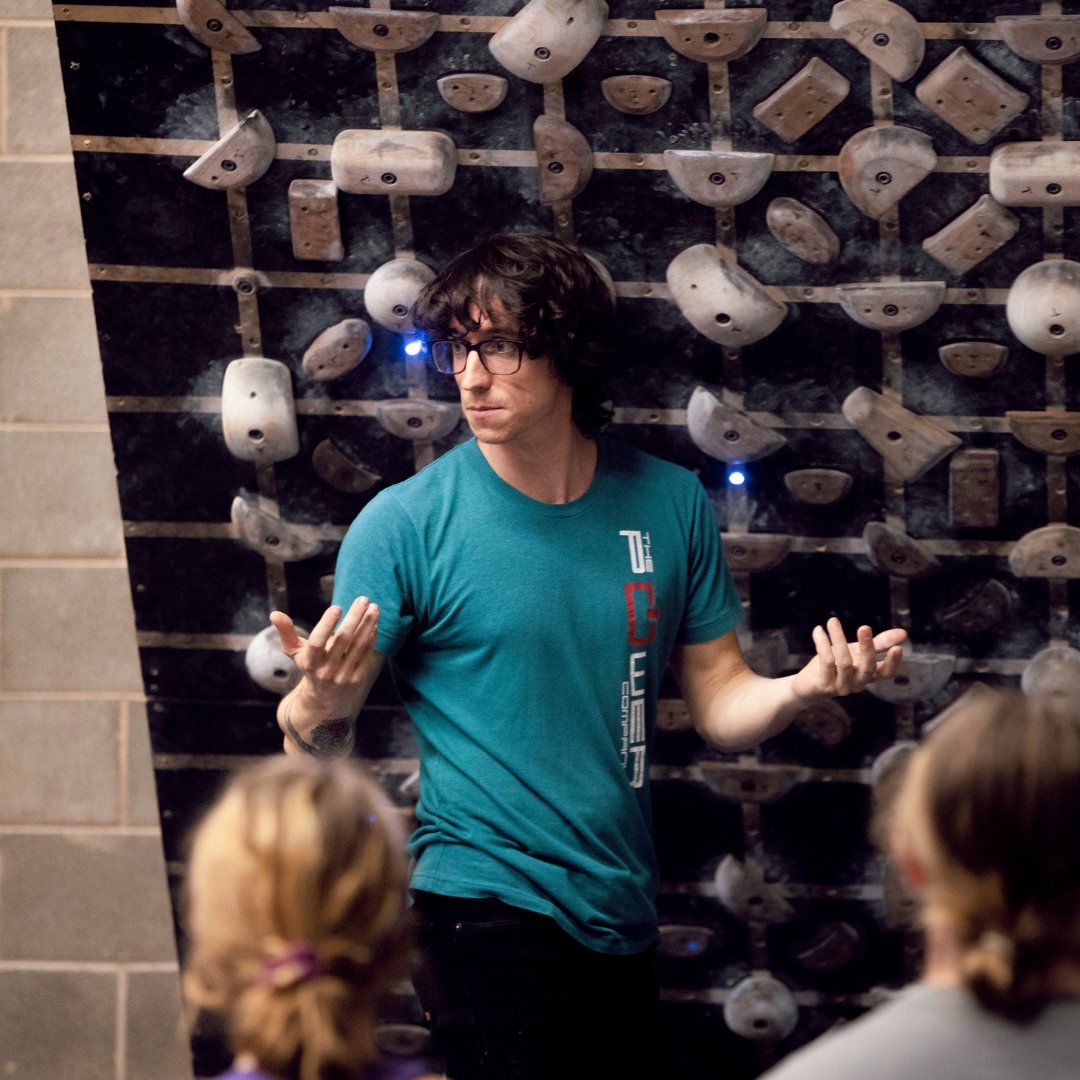
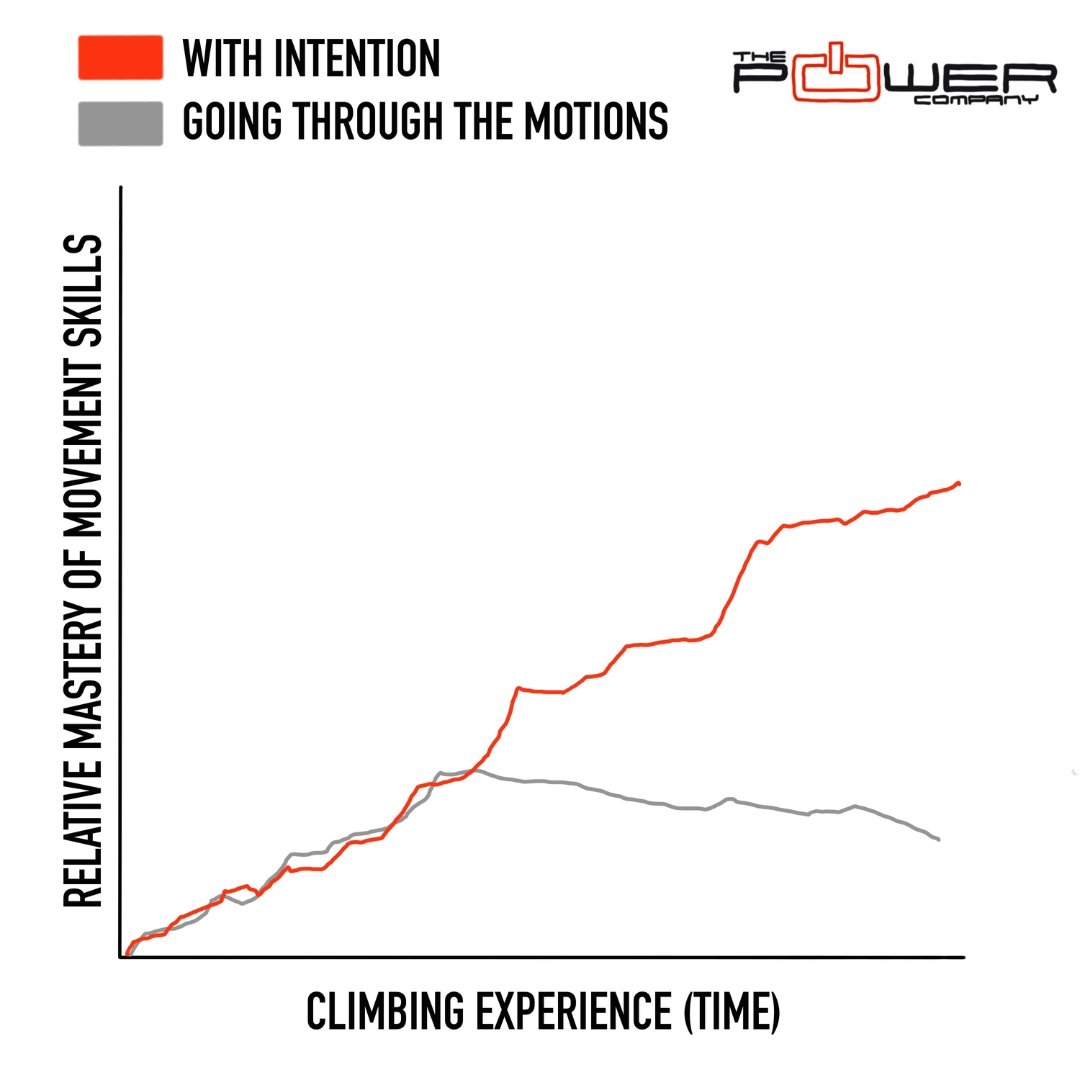


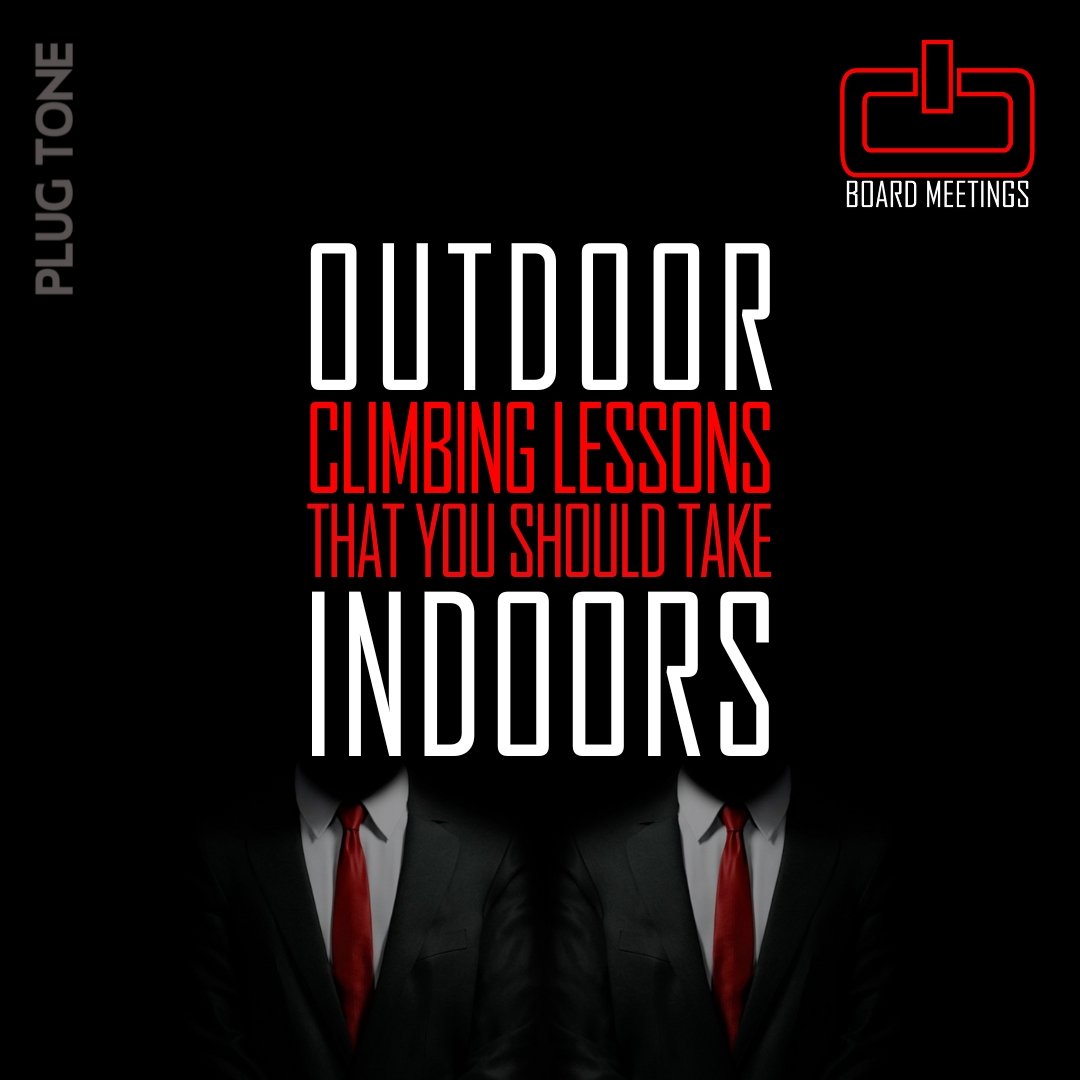

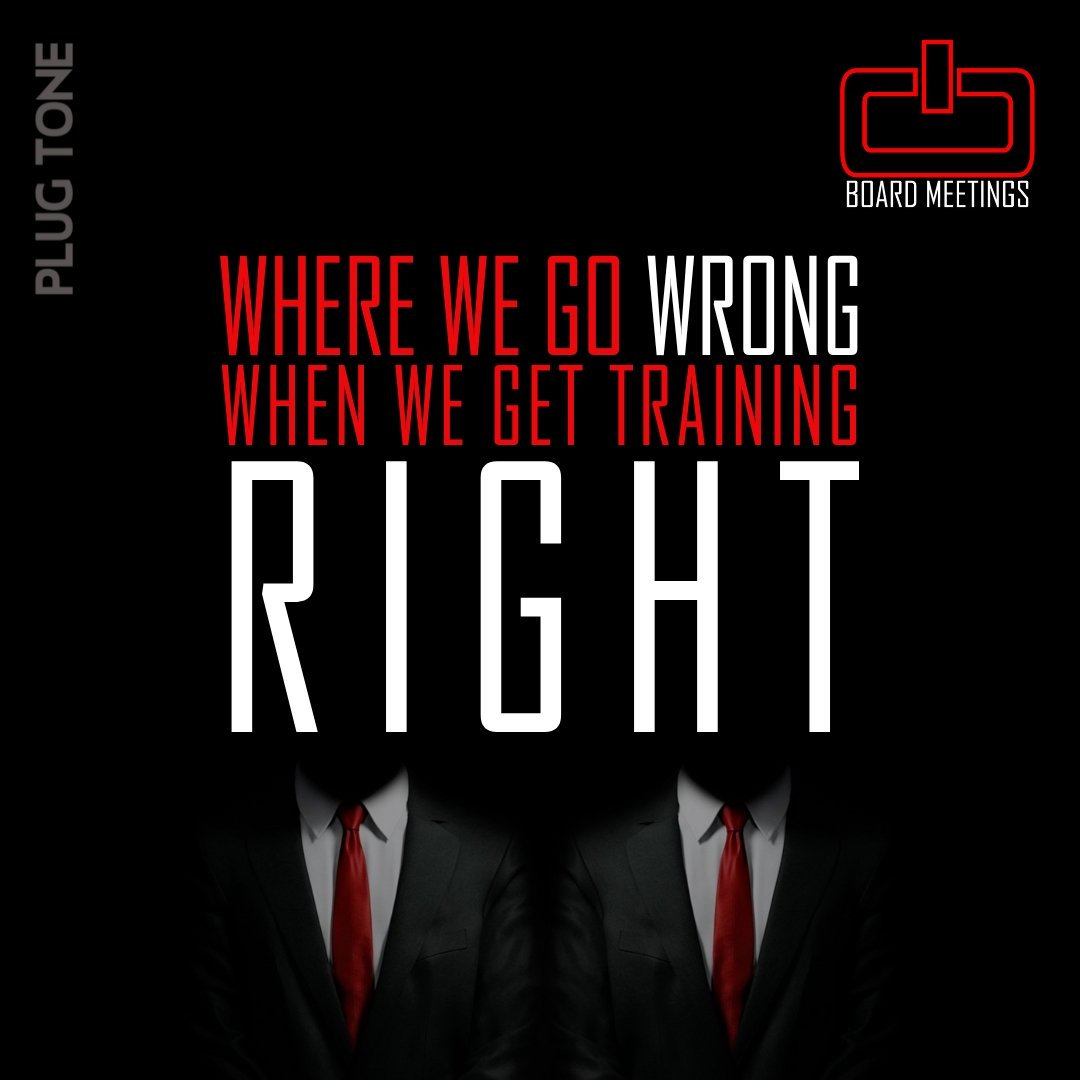




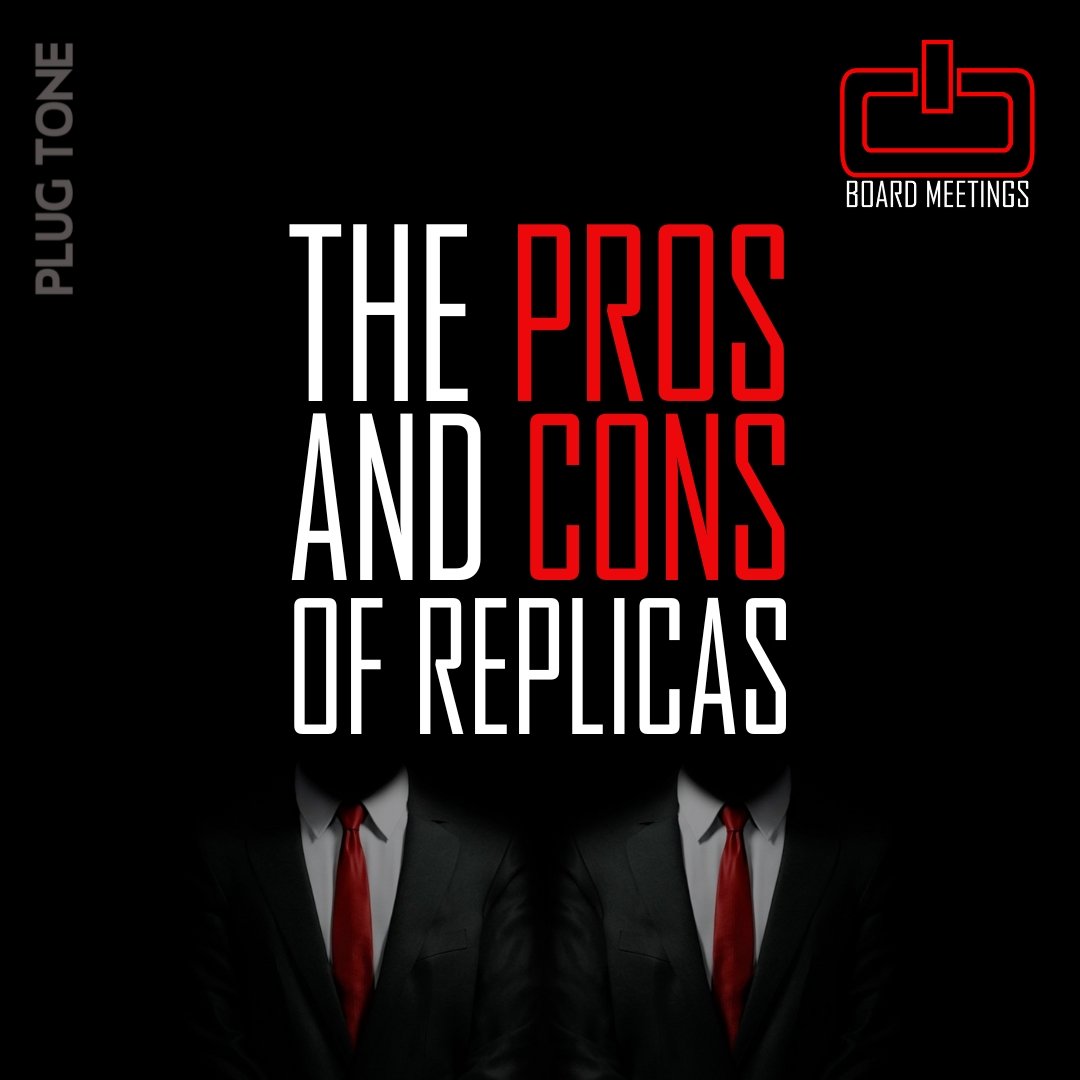
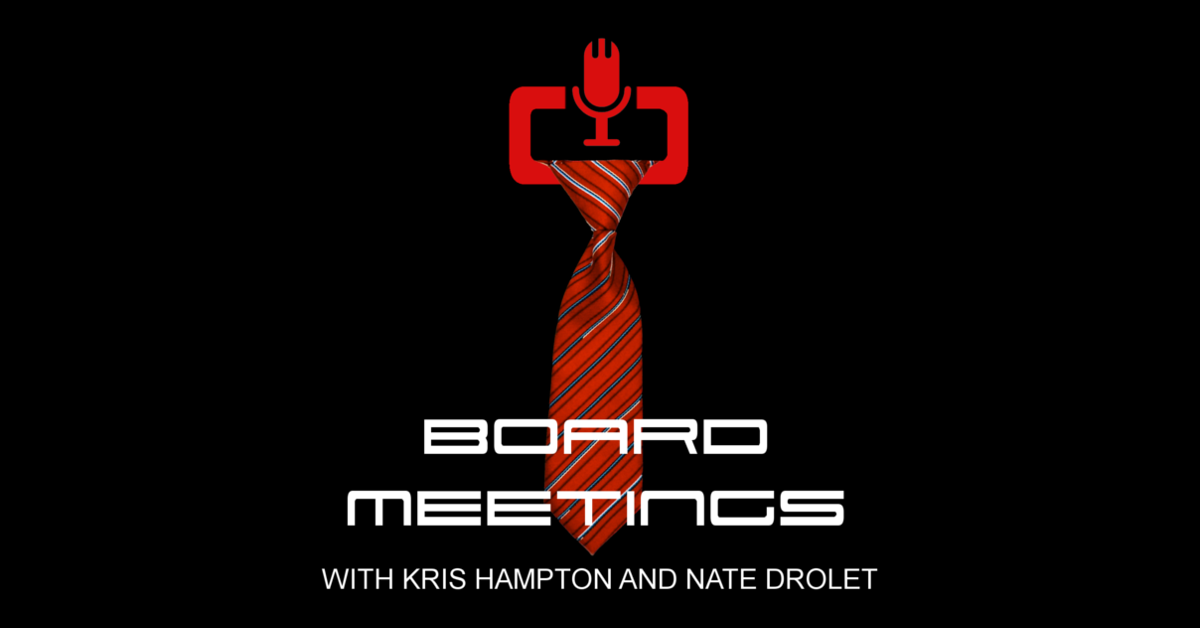











How do you know which is right for your situation?